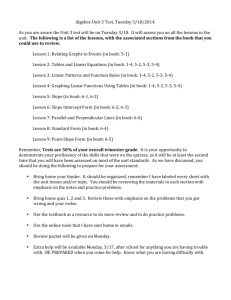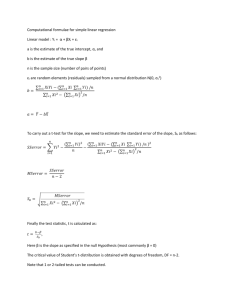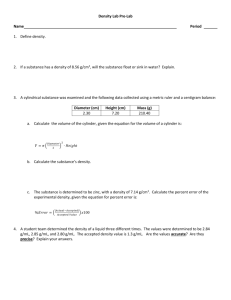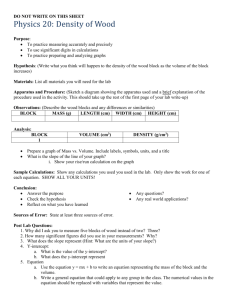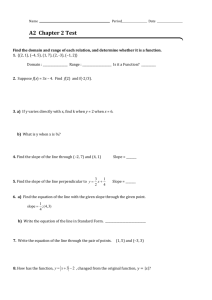Wood Density Lab
advertisement
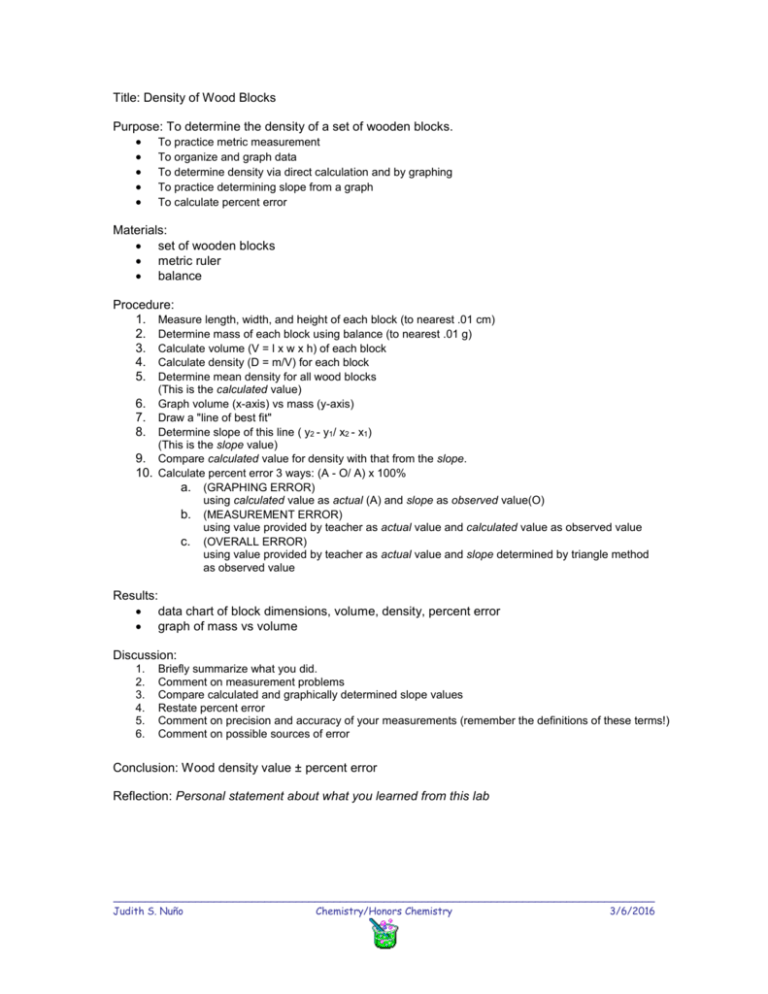
Title: Density of Wood Blocks Purpose: To determine the density of a set of wooden blocks. To practice metric measurement To organize and graph data To determine density via direct calculation and by graphing To practice determining slope from a graph To calculate percent error Materials: set of wooden blocks metric ruler balance Procedure: 1. Measure length, width, and height of each block (to nearest .01 cm) 2. Determine mass of each block using balance (to nearest .01 g) 3. Calculate volume (V = l x w x h) of each block 4. Calculate density (D = m/V) for each block 5. Determine mean density for all wood blocks (This is the calculated value) 6. Graph volume (x-axis) vs mass (y-axis) 7. Draw a "line of best fit" 8. Determine slope of this line ( y2 - y1/ x2 - x1) (This is the slope value) 9. Compare calculated value for density with that from the slope. 10. Calculate percent error 3 ways: (A - O/ A) x 100% a. (GRAPHING ERROR) using calculated value as actual (A) and slope as observed value(O) b. (MEASUREMENT ERROR) c. using value provided by teacher as actual value and calculated value as observed value (OVERALL ERROR) using value provided by teacher as actual value and slope determined by triangle method as observed value Results: data chart of block dimensions, volume, density, percent error graph of mass vs volume Discussion: 1. 2. 3. 4. 5. 6. Briefly summarize what you did. Comment on measurement problems Compare calculated and graphically determined slope values Restate percent error Comment on precision and accuracy of your measurements (remember the definitions of these terms!) Comment on possible sources of error Conclusion: Wood density value ± percent error Reflection: Personal statement about what you learned from this lab ______________________________________________________________________________________ Judith S. Nuño Chemistry/Honors Chemistry 3/6/2016 Data Table 1: Block Dimensions, Volume, and Density Block Length (cm) Width (cm) Height (cm) Mass (g) Volume (cm3) Density (calculated) (g/cm3) Percent Error Density (slope) (g/cm3) A O 100 A Graphing Error A= calculated density O = slope 1 2 Measurement Error A= *actual O = calculated 3 4 Overall Error A= *actual O = slope 5 6 Average Density *actual density of wood blocks = __________g/cm 3 ______________________________________________________________________________________ Judith S. Nuño Chemistry/Honors Chemistry 3/6/2016

